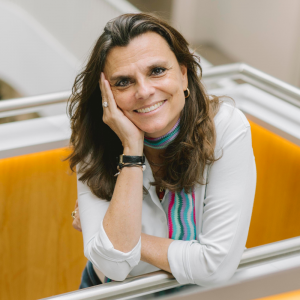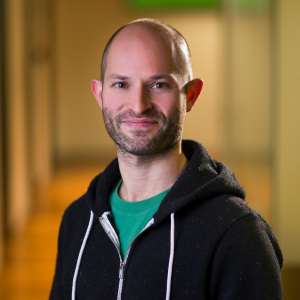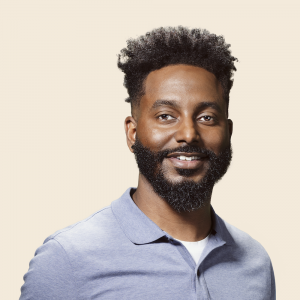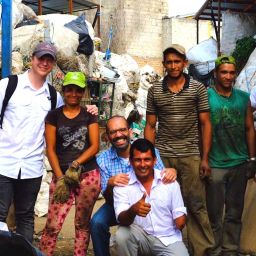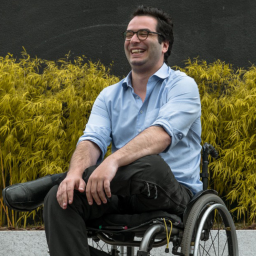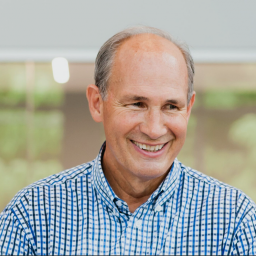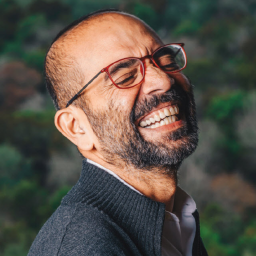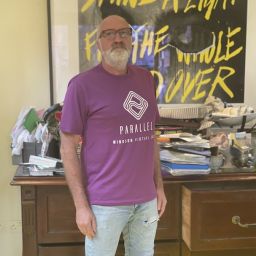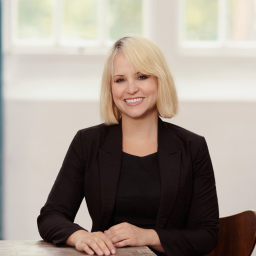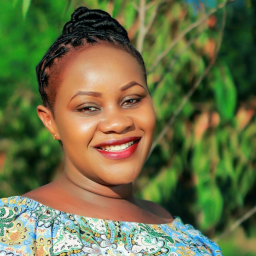Why is disability inclusion such an important topic to you?
Our interest in disability inclusion stems from the time when we were involved in the Paralympic Games in 2008, Anna (Parisi) working in Canada for the Paralympic Committee and Suzy (Christopher) working in the UK for BT. We both have first-hand experience of developing and delivering creative and authentic disability-focused brand activations and campaigns that made a big difference to the businesses we were working for and supporting, not only in terms of increasing employee and customer engagement but also delivering brand value, and a meaningful impact on the lives of disabled people. However, the “halo” effect of the Paralympics can be short-lived and sadly many sponsors revert to “business as usual” when the Games move on, missing an opportunity to embed disability inclusion into their ongoing business strategy, operations or sales and marketing. The knock-on effect is that nothing really changes for disabled people day-to-day and many aspects of society remain largely inaccessible, which we want to change!
What we often find missing is that businesses are not fully aware of the widespread evidence that diversity and inclusion are both good for business AND society. As a result, disability inclusion is often left behind or ignored. Or – when it is included – it’s in an ad hoc, tick-box or stereotypical way, rather than being embedded in the strategy. It’s time to stop thinking about inclusion in terms of accessible recruitment practices and internal culture. Disability inclusion can create real value for the business if it’s embedded in every aspect of the company, including how you show up to all stakeholders, including customers. After all, inclusion is better for everybody.
What is the biggest hurdle that you think exists in championing the rights of all disabled people?
One of the biggest hurdles is that “disabled” is a catch-all term, whereas in reality people who identify as having a disability or being disabled are unique individuals. Therefore, championing the rights of disabled people can’t be done using a “one-size-fits-all” approach. Disabilities can be physical and/or mental, visible and/or invisible, relatively simple (in layperson’s terms) and/or highly complex. A person can be born with a disability or can acquire a disability through an accident or illness, or through aging. Yet there’s an unconscious bias in most people to think “wheelchair” and a temptation to think that providing a ramp is the only “fix” that’s required. Achieving true equity and inclusion for disabled people will require a mindset change, as well as practical steps to make both physical and digital environments more accessible.
Another challenge is the fear factor that seems to rise up around disability. Some people won’t engage in conversation about – let alone take positive action toward – disability inclusion because they’re scared of saying or doing the wrong thing and causing offence. Disability isn’t a dirty word, so be an ally and start talking to disabled people to garner their ideas, feedback and opinions.
Fewer than one in 20 companies speak openly about creating environments in which persons with disabilities can thrive. – Enabling Change – Getting to Equal 2020: Disability Inclusion, Accenture
You regularly talk about true inclusion – what does that mean to you?
Diversity, equality, equity, belonging, inclusion – these words are all standard parlance in the business community today. But when organisations say they prioritise diversity and inclusion in their workplace, they often focus on one particular under-represented group or issue, rather than adopting a holistic, intersectional approach. And – quite simply – that will never achieve true inclusion.
So, while it’s great that companies are making bold commitments to recruit more women or people from Black Asian and Minority Ethnic backgrounds, they won’t be inclusive until they ensure that disabled people can also join and progress. For us, true inclusion is a society with no barriers, where minority groups aren’t pitted against each other. In a truly inclusive organisation, the role of an EDI Officer won’t be required any more. Jess Markt, International Committee for the Red Cross Disability Sport & Inclusion Advisor puts it best. He calls it “Effortless Inclusion.”
Business leaders making commitments around diversity and inclusion must ensure that their Equality, Diversity and Inclusion strategy demonstrates specific intent when it comes to disability inclusion. Without a concerted focus and continued affirmative action, disabled people are at risk of prolonged discrimination. The time to act is now.
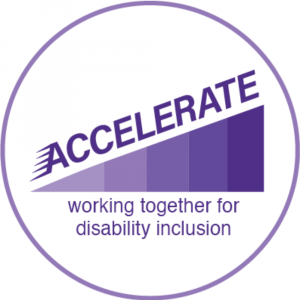
What are some of the myths around hiring people with disabilities?
It might be hard to believe, but there are some people who simply don’t believe that roles in their organisation could be undertaken by a disabled person. Stigma and stereotypes sadly abound. Another myth is the perceived level of difficulty and cost to make reasonable adjustments so that a disabled person can join the workforce, or that disabled people need lots of time off.
59% of accommodations cost nothing, while the rest typically cost only $500 per disabled employee (Job Accommodation Network, U.S. Department of Labor’s Office of Disability Employment Policy)
How has the pandemic affected the conversation and opportunities around disability inclusion?
As Suzy wrote in a recent LinkedIn article, when it comes to disability inclusion, lockdown – in its own way – is helping to inspire action towards building a more inclusive society post-Covid. It seems strange to be thankful to something that’s causing so much anxiety and stress to so many – but lockdown has given everybody a common experience of losing freedom of choice. Suddenly everyone is experiencing the same imposition of stringent restrictions on travel, social interaction and access to workplaces and public spaces that many disabled people experience day in, day out, year-round. We’re all in the same storm.
There are positive signs that enlightened organisations are starting to shift their attitude towards disability inclusion as part of a broader intent around diversifying their workforce. In September 2020, the Open University Business Barometer shared the views of UK business leaders: “Over two thirds (67%) of senior leaders say that they are actively looking to hire candidates from more diverse backgrounds. Of those who anticipate diversity will impact their organisation in the next 12 months, a quarter (26%) say they will actively recruit candidates with disabilities.”
However, an intent to hire people with disabilities doesn’t mean anything unless you take affirmative action and you have an inclusive workplace culture. A recent report from Accenture shows that in many organisations disabled employees feel less included than ever. Their research shows that before the pandemic, 23% of employees with disabilities said they felt completely included at work, compared with 29% of their colleagues. While everyone has felt their sense of belonging at work fall away, that gap has widened with just 16% of employees with disabilities now saying they feel completely included (versus 25% of their colleagues).
The message is clear – businesses need to prioritise disability inclusion as part of their post-Covid recovery strategy.
What do you hope to achieve through ‘Accelerate’?
Accelerate provides a brilliant opportunity to engage with a new audience to raise awareness about disability inclusion and – more importantly – to stimulate organisations to take positive action toward becoming more inclusive. We want to demonstrate how disability inclusion can add value to every business, whatever its core purpose and wherever it operates. Disabled people are often disproportionately impacted by the world’s biggest challenges. Therefore we strongly believe that all purpose-led organisations need to include disabled voices in their plan to solve these. Through Accelerate we want to spark conversations, collaborations and action. Together, we can change the world!
What can business leaders be doing to make society more accessible and inclusive?
There are some fundamental steps business leaders can take right now to help make society more accessible and inclusive. In recent global research conducted by The Valuable 500, only 4% of business leaders actively consider disability as part of their organisation’s inclusion agenda, so acknowledging if you don’t have a plan for disability inclusion is critical. Rather than seeing this as a failing, we see this as a positive first step towards disability inclusion. If disability inclusion isn’t specifically called out in your EDI strategy, make it so. Be accountable for disability inclusion action within your organisation, make sure the benefits are clearly understood, ensure that this area is resourced properly and put KPIs and reporting in place. After all, what gets measured gets done. It’s also important to demonstrate leadership and be willing to collaborate and share, to bring others with you.


